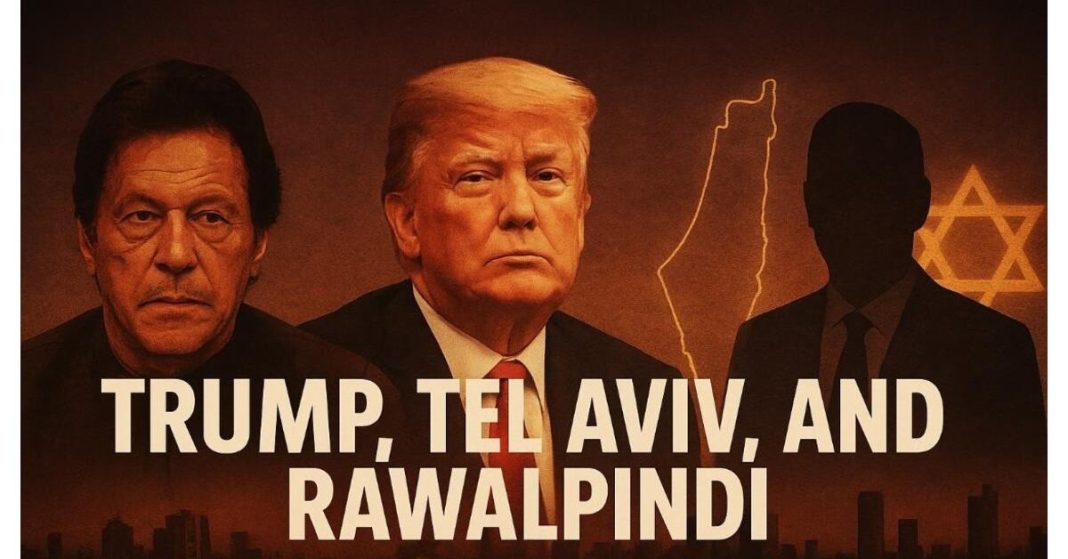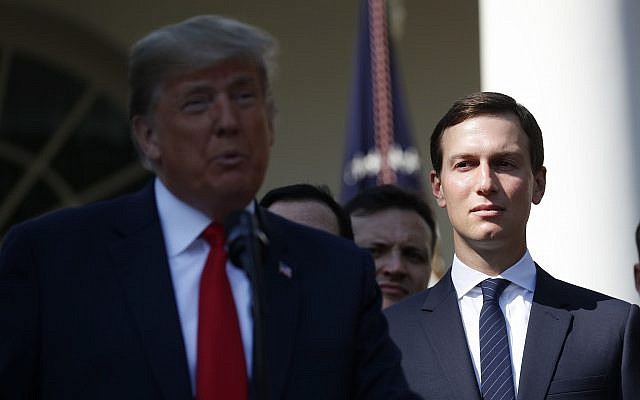In Pakistan today, the country’s powerful generals have turned politics into a zero-sum game — a battle for survival in which the rise of Imran Khan would mark the end of the military’s 78-year-long dominance. Since his removal from power, the military establishment has deployed every possible weapon in its arsenal to keep the former prime minister behind bars — from constitutional manipulations and fabricated cases to media blackouts and restricted access during incarceration. Yet, despite these draconian tactics, public support for Khan remains unshaken, reportedly exceeding 90 percent among Pakistanis both at home and abroad.
However, the generals’ deepest fear did not originate within Pakistan — it came from abroad.
In 2024, the Pakistani diaspora in the United States had mobilized aggressively, particularly among circles close to Donald Trump. It was widely believed that after Trump returned to White House, pressure on Pakistan’s military to release Imran Khan would have intensified sharply. Initially, the generals dismissed the possibility of Trump’s comeback. However, when his political resurgence became reality, their approach shifted from denial to desperation.
A Lobbying Blitz in Washington
Reports suggest that intermediaries linked to Trump-era figures, such as Keith Schiller and George Sorial of Javelin Advisors, were engaged to explore lobbying avenues in Washington, aiming to open doors into Trump’s political and business networks. Many suspect that a former well-connected diplomat may also have facilitated these communications.
Simultaneously, they activated their longstanding network within CENTCOM — the U.S. Central Command — whose retired officers have, for decades, maintained lucrative relationships with Pakistan’s military, especially during the Afghan wars of the 1980s and post-9/11 era.
According to insiders, these CENTCOM intermediaries pitched Trump on a grand opportunity: to reclaim political redemption after the chaotic U.S. withdrawal from Afghanistan. Pakistan, they claimed, could help him “avenge” that humiliation.
The ‘Wanted Man’ and the Optics of Cooperation
The first overture came in the form of a staged counter-terrorism success. In March 2025, Islamabad handed over Abdul Rehman Khurasani, a suspect in the 2021 Kabul airport bombing, to U.S. authorities— a move widely covered by Al Jazeera and other international outlets.
Trump, believing he had secured a major intelligence victory, publicly thanked Pakistan in his State of the Union address, calling the handover “a powerful symbol of renewed partnership.” But independent analysts in Kabul and Doha later questioned the credibility of Khurasani’s alleged role, suggesting the arrest was more political theater than genuine cooperation — crafted to win Trump’s gratitude and re-establish Rawalpindi’s relevance in Washington.
The Trump Connection: Flattery, Money, and Minerals
The generals didn’t stop there. They exploited Trump’s known weaknesses — flattery, business incentives, and Israeli connections. General Michael Kurilla, the CENTCOM commander, was seen as a key interlocutor in U.S.–Pakistan military coordination. Regional analysts have speculated that informal diplomatic channels — including contacts in Israel and the Gulf — were leveraged to reach Trump’s inner circle through other business-linked intermediaries.
Through these backchannels, reports circulating in diplomatic and media circles — including claims cited by a former U.S. ambassador and Chief of Staff Rahm Emanuel while speaking on Meidastouch network— alleged that a substantial investment from the Pakistani regime was directed toward a business venture associated with the Trump family.
At the same time, Pakistan’s intermediaries reportedly discussed trade and investment incentives — including access to mineral sectors and emerging financial ventures — to reinforce goodwill
The charm offensive worked — Trump, in a recent speech at the Peace Summit, began referring to Pakistan’s army chief as his “favorite field marshal.”
It is believed that due to this back-channel diplomacy, General Kurilla was later awarded Pakistan’s highest military medal, symbolizing both gratitude and the consolidation of a new strategic triangle linking Rawalpindi, Tel Aviv, and Washington.
The Cult of Flattery: From Nobel Nominations to Kakul Praises
The generals’ pursuit of Trump’s favor soon turned into a spectacle of sycophancy.
Understanding Trump’s hunger for adulation, Pakistan’s proxy prime minister Shahbaz Shareef— acting on the establishment’s cues — took the extraordinary step of nominating Donald Trump for the Nobel Peace Prize. In a striking twist of irony, Israel did the same, leading to a bizarre alignment between two nations founded on opposed ideologies — Pakistan in the name of Islam, and Israel in the name of Zionism — now united in their coordinated praise of a man they saw as a political lifeline.
At the recent so-called “Peace Summit”, the same proxy leader Shahbaz Shareef went overboard in his public admiration, calling Trump a “global man of peace.” The scenes drew quiet embarrassment across diplomatic circles, but they perfectly reflected the desperation of Islamabad’s current regime to remain in Trump’s good books.
Even General Asim Munir, known for his carefully scripted appearances, joined the chorus. During his speech at the Kakul military academy’s passing-out parade, Munir showered excessive praise on Trump’s “leadership and courage,” in what observers described as one of the most politically loaded addresses ever delivered at the institution.
The New Bargain: Afghanistan, Extremism, and Raw Power
Analysts believe that having secured access to Trump’s orbit, the Pakistani generals crafted a new three-part pitch:
- Offer 1: Re-opening Bagram Air Base and recovery of S. military equipment left behind in Afghanistan.
- Offer 2: Launch of fresh operations against “terrorists” in border regions — conveniently overlapping with rare-earth-rich zones.
- Offer 3: A crackdown on Tehreek-e-Labbaik Pakistan (TLP) to project an image of fighting
This concoction was designed to appeal to a Western far-right establishment increasingly defined by
Islamophobia and militarism. The generals packaged their campaign as a “counter-terror” initiative while quietly monetizing the mineral-rich areas they bombed. It is, in essence, a toxic blend of fear and profit— served to a White House eager for geopolitical validation.
While the specifics of these proposals remain unverified, they reflect the broad narrative circulating among analysts and observers of U.S.–Pakistan military relations
The Real Cost: Recognition for Recognition
But as the saying goes, there is no free lunch.
Trump’s warm acknowledgment of Pakistan’s current rulers came with a hefty political price tag. According to claims circulating in diplomatic and policy circles, Washington’s recognition of Pakistan’s
“Form 47 government” was tied to a commitment to sign the Abraham Accords, effectively paving the way for Pakistan’s recognition of Israel — a step that would overturn decades of official policy and inflame domestic sentiment.
In parallel, a side pact with Saudi Arabia was also drafted as part of this arrangement, giving the appearance of a broader “regional normalization” package.
In my view, this reflected yet another transactional exchange — foreign legitimacy traded for national sovereignty, with the generals once again turning Pakistan into collateral in their political survival game.
Read more: Trump Launches Demolition of White House East Wing for $250 Million Ballroom
The Ultimate Fear: Imran Khan’s Return
At the heart of this geopolitical theater lies a singular obsession — Imran Khan’s political resurrection. The generals know that a fair election, or even his release, could dismantle the patronage networks that have sustained military supremacy for generations.
And so, to preserve their power, critics argue that they appear willing to trade national sovereignty for institutional survival:
- Recognizing Israel via the Abraham Accords, despite domestic outrage and the absence of formal
- Cracking down on their own citizens with the state
- Selling off national resources at a bargain
- And flattering foreign leaders through money and
This isn’t strategy — it’s desperation.
And it exposes the grim reality of Pakistan’s current crisis: that those who claim to defend the nation are willing to sell its dignity, its resources, and even its alliances — all to ensure that one man, Imran Khan, never walks free. Only time will tell what Pakistan and it coming generations will have to pay for this gamble.














